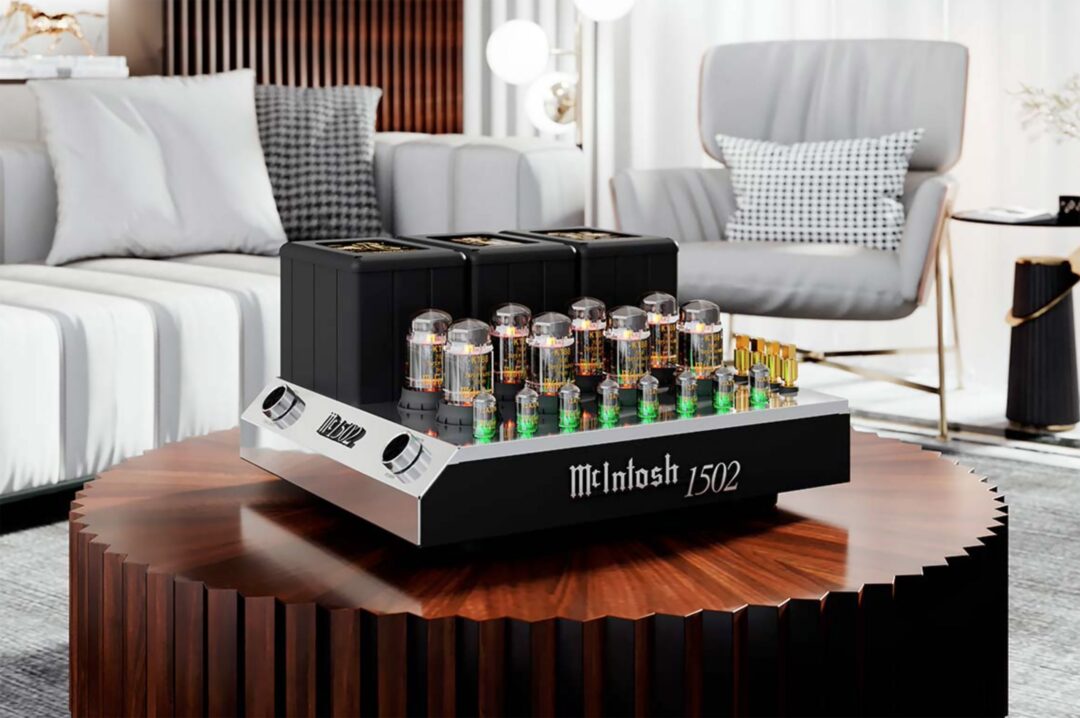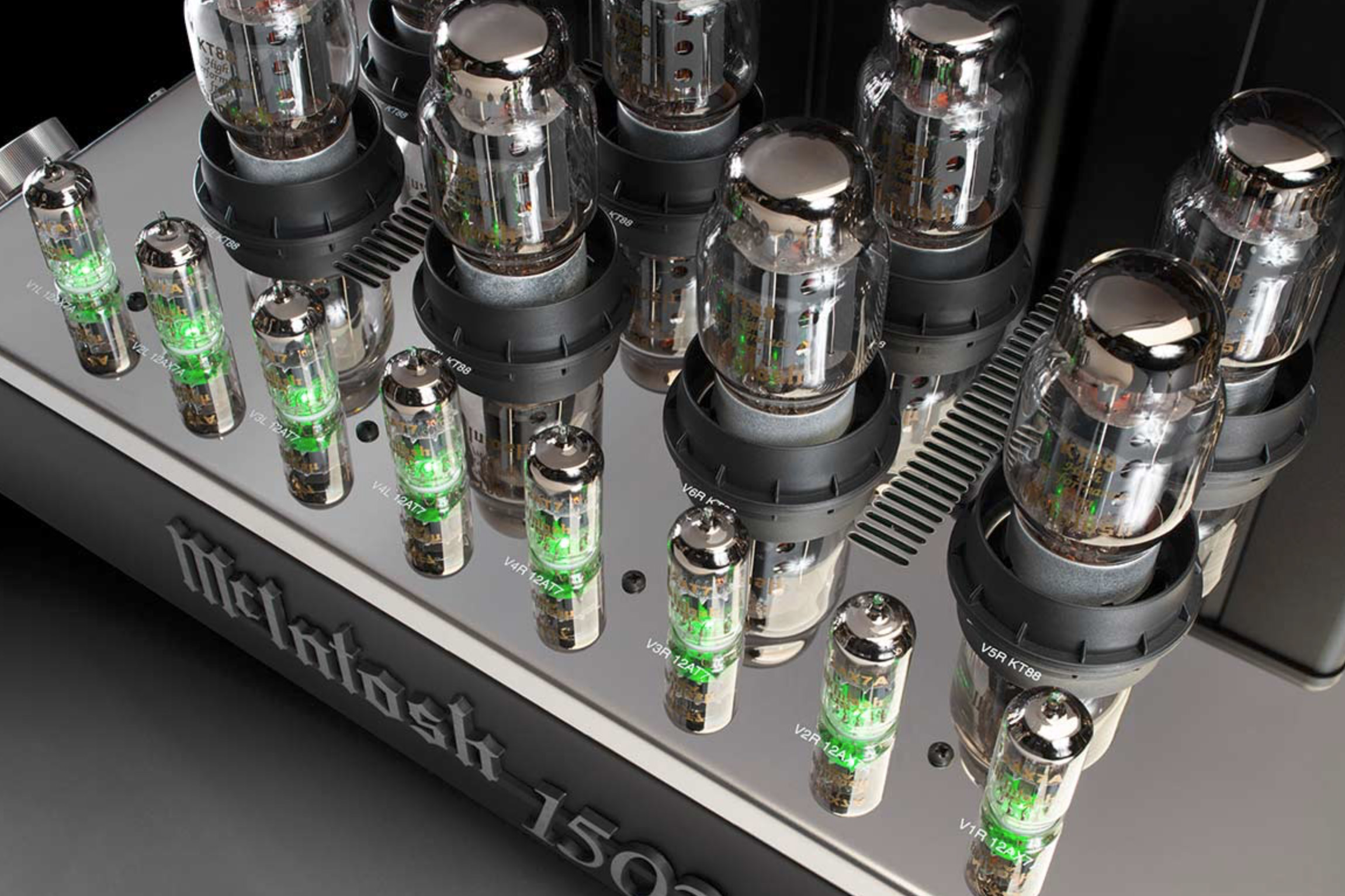McIntosh, like so many others, started with valve amplifiers, but like most at the time, they eventually made more transistor amplifiers than valve amplifiers.
That was not so strange. The new technology that transistors were in the late 60s and early 70s, was easier to implement, did not get as hot and one could build the cabinets smaller.
Transistors did not need as much cooling and took up less space.
But many missed the warm and full-bodied sound of valves, claiming that the transistor sounded too hard and distorted. In other words, the same objections you heard in the 80’s about vinyl versus CD.
So some continued with valves, and toiled little with transistor-based amplifiers.
Not McIntosh. Under Japanese ownership in the 80’s, the focus was on transistors and the large valve amplifiers gradually disappeared from the catalogs. It was not until some markets began to actively demand McIntosh with valves that something happened and the legendary MC275 of 75 W, resurfaced and is to this day in production at McIntosh in Binghamton outside New York.
The long tradition of valve amplifiers has also given us several anniversary models. Among other things of the mentioned MC275, and not long ago McIntosh celebrated 70 years and released the amplifier set MC2152 and C70. Both with valves.
With a limited number of amplifier sets, it did not take long before they were sold out. But McIntosh keeps up the interest with a set of more civilian versions of the same technology, wrapped in the classic cabinets in shiny chrome and black. MC1502 is based on MC2152, but carbon fiber has given way to chrome in the classic McIntosh design, where the acoustic properties are preserved.
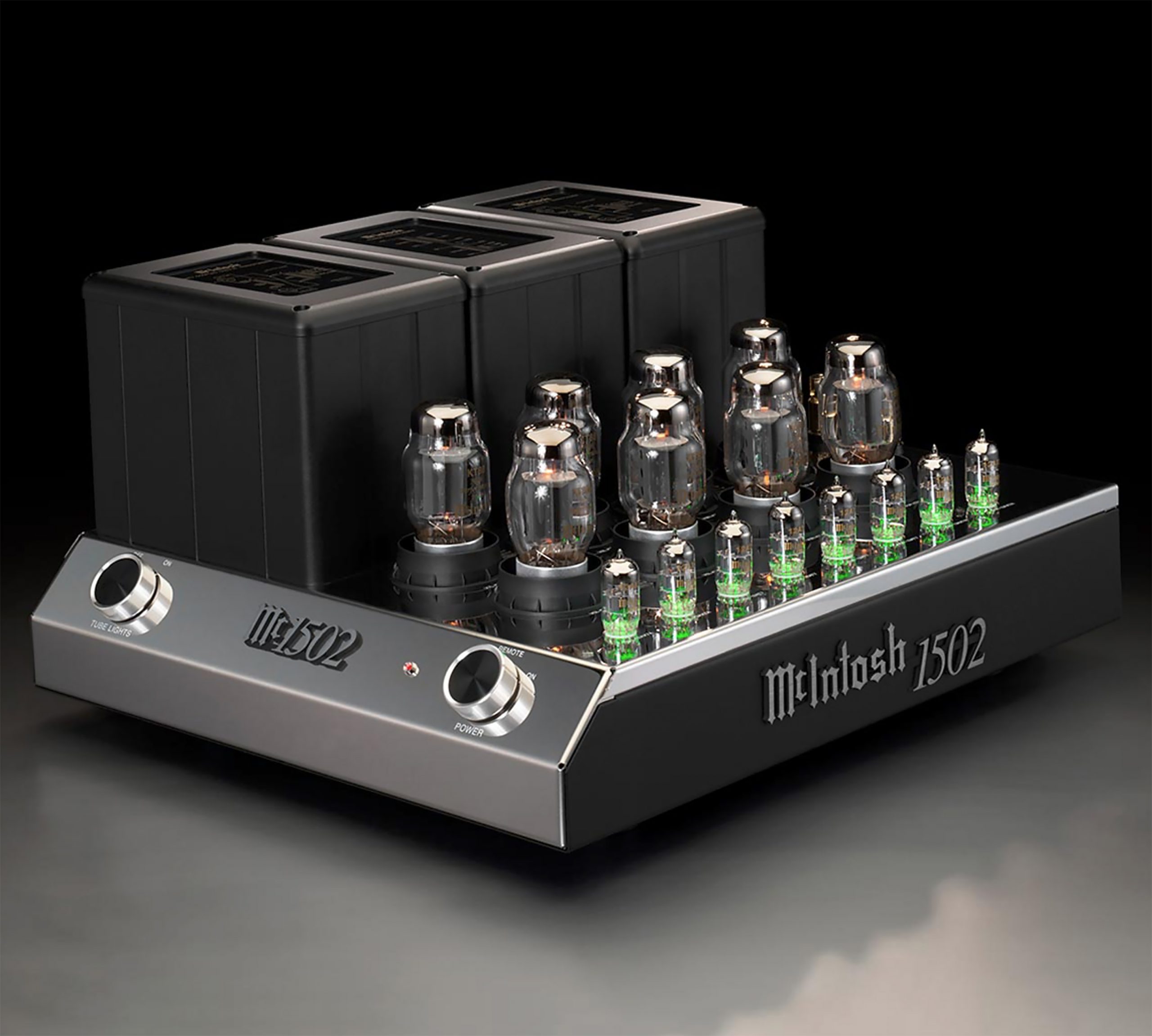
150 w from four KT88 tubes
It is a massive amplifier that measures about half a meter in depth, weighs over 50 kilos, and commands its place on the shelf. Like the MC2152 and virtually all other McIntosh valve amplifiers, this one also uses the autoformers on the outputs – Unity Coupled Circuit – invented in 1949, which are transformers with windings and associated outputs for 2, 4 and 8 ohm speakers.
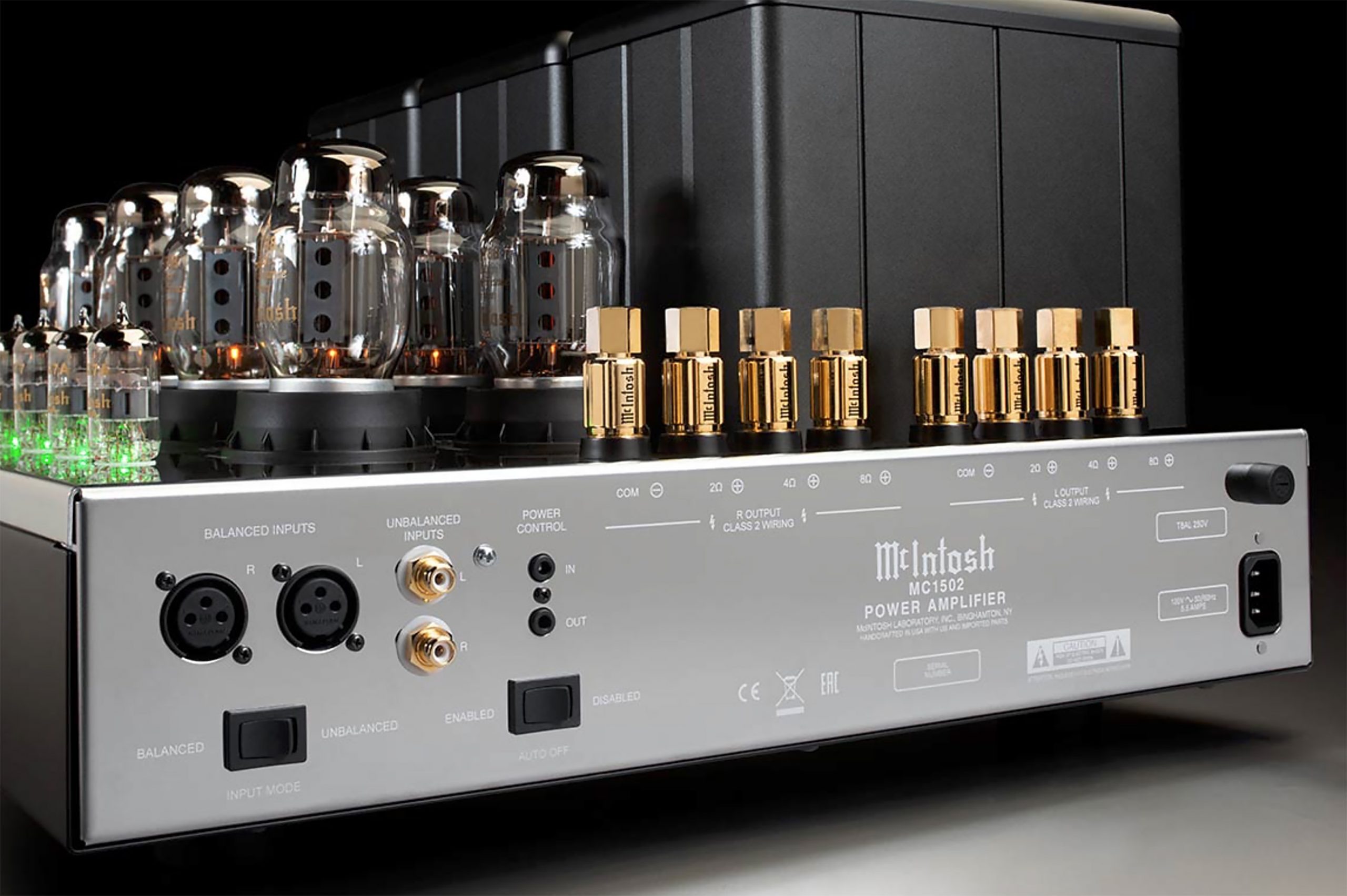
Consequently, the amplifier delivers the same power regardless of output, and it gets it from four KT88 valves, driven by four 12AX7A and four 12AT7 valves, which can be covered with a black lacquered grid for better protection. You can still see the valves, the warm-up sequence where they change from orange to green while the valves are heating up, and expectations rise in line with the powering up.
By the way, the lights can be switched off from the front.
At the back there are both balanced and unbalanced inputs, and small minijack connectors that you connect to a McIntosh preamplifier, so that both light up at the same time when you turn on one of them.
The amplifier is protected by the McIntosh Sentry Monitor, which disconnects the outputs if it is detected that it has been pushed to the outer limit of what the circuits can withstand.
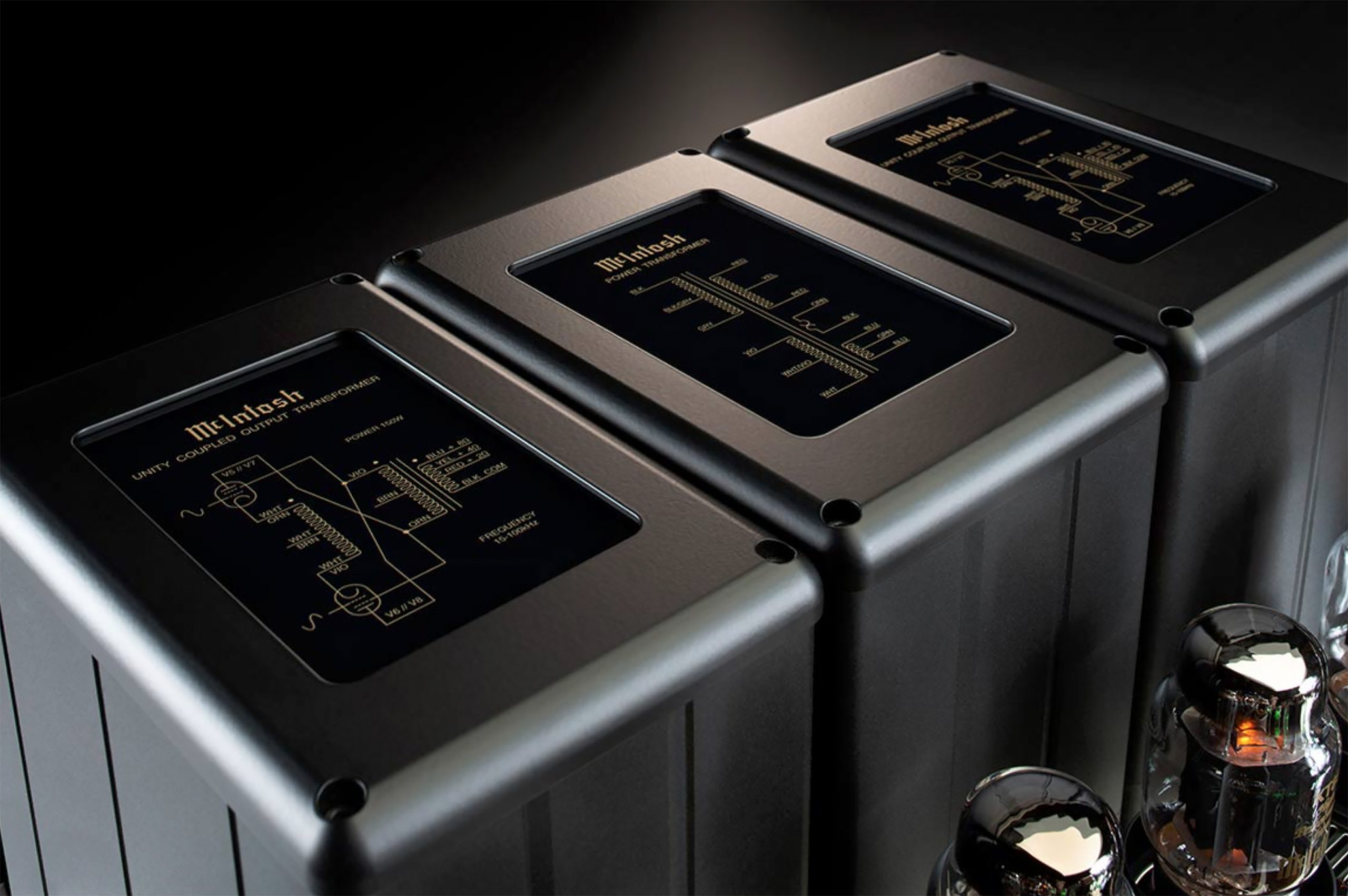
Magnificent sound stage
In a way, the amplifier is the result of merging two MC275s into two mono amplifiers, which provide 2 x 150w, but McIntosh says that changes in the autoformers, among other things, enable the MC1502 to deliver a much better signal-to-noise ratio – 112 against 105 dB – which reduces noise considerably, and gives the music a deeper black background that does not mask timbres and details to the same degree.
There is no reason to doubt that, because it is as quiet as the grave when the power is turned on, but powerful like a steamroller when the music starts.
On small speakers, such as the Audiovector R1 Arreté, one of our favorite compact speakers, a rare, big soundscape is created where e.g. double bass comes out very well. Without feeling that it is too much of a good thing.
If you connect larger speakers, the sound naturally grows and you feel that the bass has greater range. I did not have anything bigger than JBL Synthesis 4367 available during the test period, but hey, it must work, I thought. JBL and McIntosh have traditionally been a good combination, and were here as well.
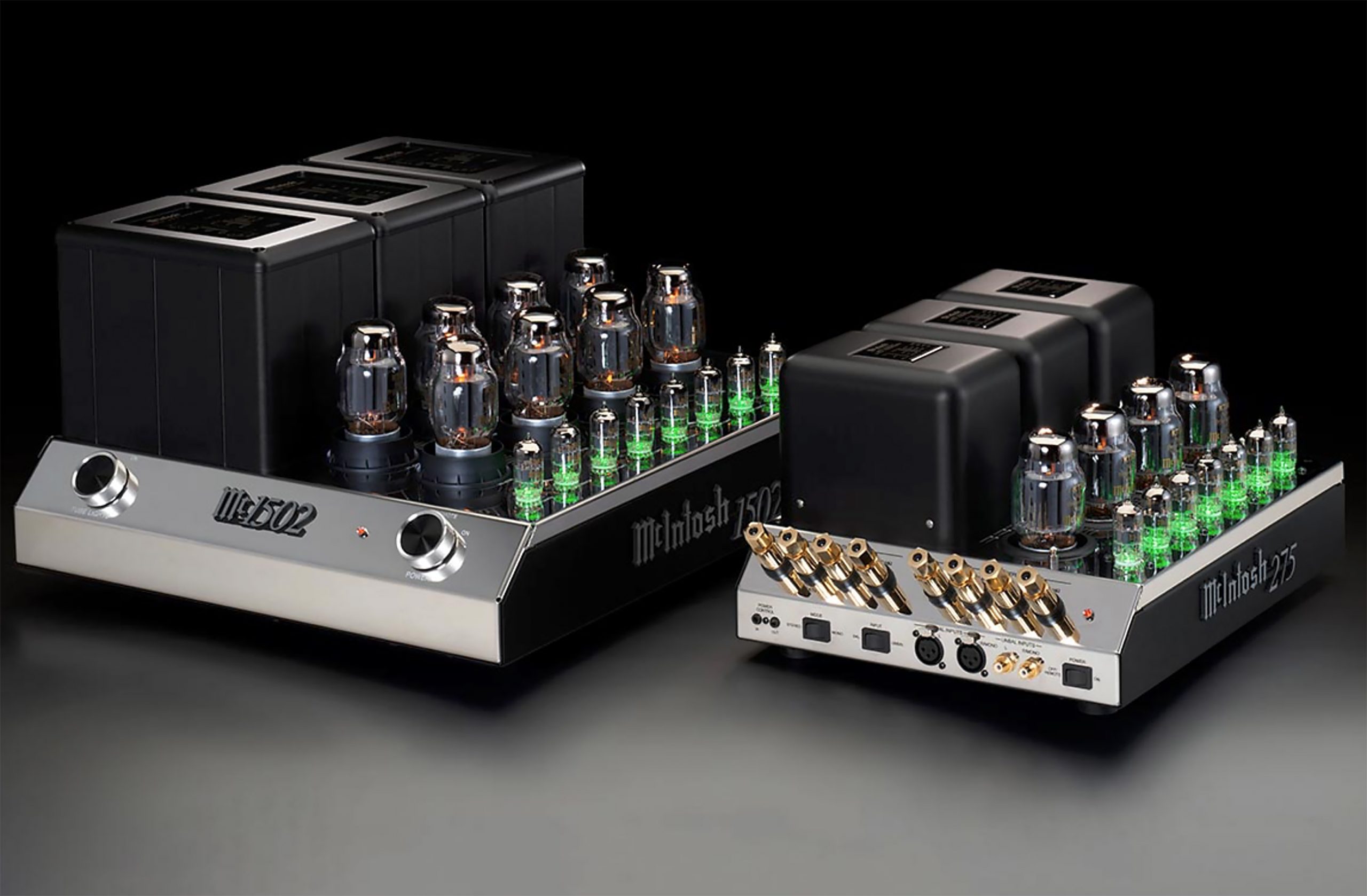
The large 15-inch requires an iron hand that takes control of the bass. Although the speakers are easy to drive, it is not at all the same as being easy to control.
Happily, the partnership sat as cast, and it is not often I feel music in the same physical way, without being at a concert.
It worked extremely well on everything I raised on the player. The live recordings on Up For It, with the Keith Jarrett trio, created an immediate jazz club atmosphere and I swear I smelled draft beer and a hint of cigarette smoke in the room.
The amplifier has steel control over the 15-inch, and plays happily both loud and clear, on the verge of the ears starting to bleed. It delivers timbres with an appealing touch of warmth, without masking details or nuances as many imagine that tube amplifiers like to do.
If you push the amplifiers to a level where you can still not be in the room, you can notice that there is even better control in a transistor amplifier such as MC462 or MC312, but the McIntosh controls the speakers with a conductor’s precision, compared to a pair of MC275 .
The naturally sounding heat and the amplifier’s ability to give even subtle nuances a place in the soundscape, is highly addictive. The transition to other amplifiers requires a new habituation, because the huge McIntosh amplifier is one of the most lifelike and engaging I have heard with tubes in a very long time.
Conclusion
The McIntosh MC1502 will go down in history as one of their classics, on a par with the MC275. It combines brutal control and quantities of power, with openness and sophistication. The amplifier is potent enough to power most speakers, and will only sound better the more it has to work with. It is so stable that it is almost impossible to break it down, and with this you can get life kicked in even the most anemic plant. If you have space and budget.

We think
Powerful dynamic control, plays bass with authority and sounds open, resolved and sublime on all speakers. Bulky. Heavy as lead, and it gets very hot. Also quite expensive.
14000 €
Specifications
- Type: Power amplifier
- Power: 2 x 150 w, 8, 4, 2 ohms
- Technology: KT88 valve output stage, 12AX7A, 12AT7 pre
- Connections: Unbalanced RCA, balanced XLR
- Frequency response: -3 dB, 10Hz – 70kHz
- Dynamics: 1.2 dB headroom
- THD: 0.5%
- Signal/noise: 112 dB
- Dimensions and weight: 46.4 x 26 x 53.5 cm/53.5 kg
- Web: mcintosh.com
